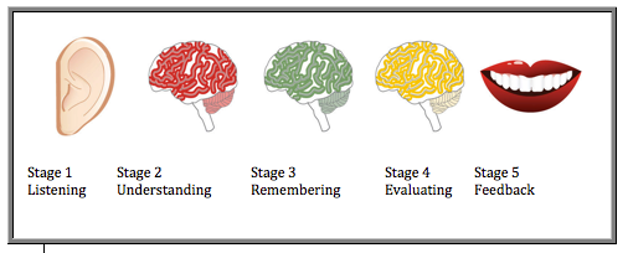Management is the process of producing results through other people. The manager’s primary focus is no longer on him/her and the tasks he has to perform, but on the employees, who do the tasks. His/her success depends to a large extent on how he/she and the employees work together to accomplish goals. As a worker he/she possibly performed the tasks better than other employees and was therefore promoted to the position of manager. Now he/she doesn’t do the same tasks anymore but oversees the performance of others who do them.
Management requires a different mindset. The manager has to direct, coach, monitor and report in order to accomplish the desired results.
The effectiveness of the manager resides in his relational skills. To be effective he/she needs to be a skilful communicator – especially in interpersonal communications. The following communication techniques are essential in interpersonal communication:
Listening Skills
Listening is perhaps a manager's or supervisor's greatest tool for improving performance, by assisting employees and identifying and fixing problems. Many problems in the workplace are created and then continued because of poor listening practices.
There is a huge difference between hearing and listening. Hearing is the physical ability to perceive sounds that is transmitted or spoken. Sounds travel through the hearing system via the outer ear, middle ear, inner ear and the auditory nerve to the brain. If a person does not have a hearing loss he is able to perceive environmental and speech sounds in the auditory area in the brain. Conscious perception of what is being heard does not need to take place. Listening on the other hand is a complex active, mental process. Listening is a much-neglected communication skill. With practice a poor listener can improve his listening skills and become an effective listener.
There are five stages in the actual listening process:


Listening Strategies
Listening is even more important in effective communication than verbal or written communication skills. A good listener is often perceived as being a very good communicator even if he/she didn’t say much during a conversation. Effective listeners are aware of their listening habits and distinguish between deliberate and emphatic listening.
Deliberate listening involves an active process where the listener seeks to understand and analyse information e.g. receiving instructions, listening to a lecture.
Emphatic listening involves listening to understand the feelings of the speaker.
Click here to view a video on how to improve your listening skills.